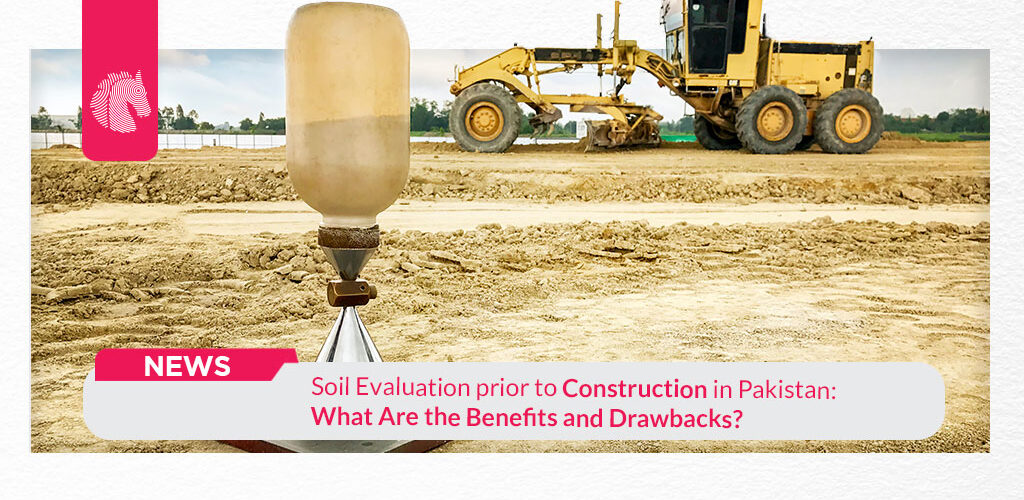Soil Evaluation prior to Construction in Pakistan: What Are the Benefits and Drawbacks?

Soil testing is a crucial component of any construction project. In Pakistan, soil testing is of utmost importance due to the diverse geology of the country. Soil testing provides a detailed analysis of soil properties, which is essential for ensuring the stability and durability of structures. This blog will discuss the importance of soil testing in construction in Pakistan, the different types of soil tests, and the benefits of soil testing.
Importance of Soil Testing in Construction in Pakistan
Pakistan is a country with diverse geology, ranging from alluvial plains to mountainous regions. The soil composition of these regions varies significantly, which can have a significant impact on the stability and durability of structures built on them. Therefore, it is crucial to conduct soil testing to determine the soil’s properties and characteristics before beginning any construction project. Soil testing helps engineers and builders make informed decisions about the types of foundations and materials needed for a particular structure. This, in turn, can ensure the longevity and safety of the structure.
Types of Soil Tests
Several soil tests are conducted during construction to evaluate the soil’s properties and characteristics. Some of the most common soil tests conducted in Pakistan include:
- Moisture Content Test: This test determines the amount of moisture present in the soil. It is essential to know the soil’s moisture content because it affects its strength and stability.
- Shear Strength Test: This test measures the soil’s resistance to shearing forces, which is crucial for determining the soil’s stability and its suitability for building foundations.
- Compaction Test: This test measures the soil’s ability to withstand compression, which is crucial for determining its suitability for building roads and pavements.
- Permeability Test: This test measures the rate at which water flows through the soil, which is essential for determining the soil’s ability to drain water.
Benefits of Soil Testing
Soil testing provides several benefits to construction projects in Pakistan. Some of the most significant benefits include:
- Determining Soil Suitability: Soil testing helps determine whether the soil is suitable for construction purposes. This is important because building structures on unsuitable soil can lead to instability and collapse.
- Selecting Appropriate Building Materials: Soil testing helps engineers and builders select appropriate building materials based on the soil’s properties. This can ensure that the structure is stable and durable.
- Reducing Costs: Soil testing can help reduce construction costs by identifying potential problems early on. This can prevent costly repairs and delays during the construction process.
- Ensuring Safety: Soil testing helps ensure the safety of the structure by ensuring that the soil can support the weight of the building. This is particularly important in earthquake-prone areas of Pakistan.
Conclusion
Soil testing is an essential component of any construction project in Pakistan. It provides critical information about the soil’s properties and characteristics, which is essential for ensuring the stability and durability of structures. Soil testing can help engineers and builders make informed decisions about the type of foundation and materials needed for a particular structure. This can ensure the longevity and safety of the structure, reduce construction costs, and prevent costly repairs and delays during the construction process. Therefore, it is imperative to conduct soil testing before beginning any construction project in Pakistan.

















